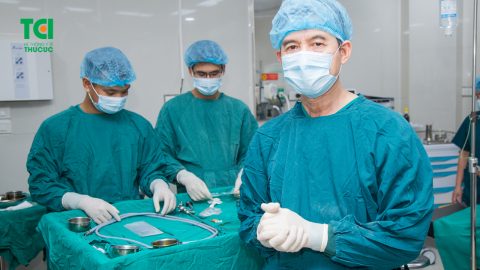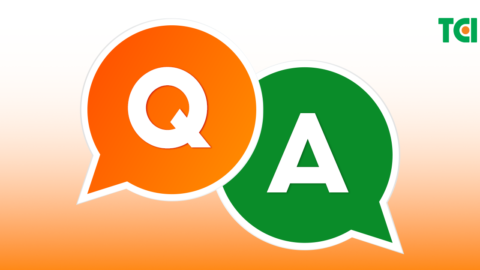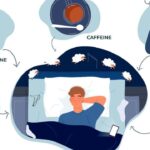Questions are answered by Dr. Huyen Huy Pham – Deputy Director of TCI Hospital & Head of Surgery and Nephro-Urology Department
 Dr. Huyen Huy Pham – Deputy Director of TCI Hospital & Head of Surgery and Nephro-Urology Department
Dr. Huyen Huy Pham – Deputy Director of TCI Hospital & Head of Surgery and Nephro-Urology Department
Q: How to treat nocturia?
A: Nocturia is a need to wake up to urinate excessively at night. Nocturia might be a side effect of underlying medical conditions such as urinary tract infections, kidney failure, diabetes, kidney stones, etc. You need to talk to your doctor and get tested to determine the exact condition. However, sometimes the cause can merely be your routine or habit. For example, you might drink too much water before bedtime, which makes you wake up at night to urinate. Some eating habits also affect nocturia, such as eating too much meat or salty food, eating watery fruits before going to sleep, etc. You should also avoid anxiety and stress, which can be a cause of nocturia.
Q: How to prevent kidney stones in the summer?
A: Our bodies get dehydrated more easily in the summer; therefore, the likelihood of having kidney stones increases markedly. Some tips to prevent the risk of kidney stones include:
- Drink enough water. Having enough water in the body helps the kidneys and liver filter toxins better, minimizing the accumulation of toxins in the liver and kidneys that might lead to kidney stones.
- Limit Oxalate-containing products: Oxalate is an acid that can lead to the formation of calcium oxalate kidney stones. Foods high in oxalates include beverages such as soda, iced tea, chocolate, etc.
- Limit the amount of caffeine: You should avoid consuming too many foods and drinks containing caffeine, such as coffee, tea, cigarettes, etc. because they might cause dehydration even when you think you are still fully hydrated. Dehydration is the main cause of kidney stones.
- Reduce your daily salt intake: Reducing the amount of salt in your diet can also reduce the amount of oxalate in your urine.
- Control your consumption of animal protein, including meat, eggs, and fish: These high in purine foods convert or break down into uric acid in the urine and contribute to kidney stone formation. Limiting eating these foods will reduce the risk of uric acid levels in the urine and prevent kidney stones.
- Exercise: It not only helps you avoid obesity but also reduces the risk of other diseases such as kidney stones, diabetes, high blood pressure, etc.
Q: What should you eat if you have kidney stones and high blood pressure?
A: If you have both high blood pressure and kidney stones, the goal is to build a diet that is
- Low in sodium and protein
- Rich in potassium
- Enough calcium
- Fat-reduced
- Stimulant-reduced
- High water intake
Some healthy eating habits you should have include:
- Eat a lot of green vegetables.
- Reduce salt and sodium: the total amount of sodium should be no more than 2,400mg/day – equivalent to 1 teaspoon of salt or 4 teaspoons of fish sauce/day.
- Follow a diet with enough calcium (about 1,000-1,200mg/day)
- Drink a lot of water. Drink 1 cup of water every 1-2 hours instead of waiting until you feel thirsty to drink it.
- Energy intake needs to be achieved at 2,000 calories/day. For the elders, energy intake should be 1,600 calories/day.
- Exercise
- Limit or eliminate foods high in cholesterol, such as the brain, intestines, heart, liver, viscera, etc.
- Consume enough micronutrients and vitamins, especially vitamins C, E, and A, which are abundant in vegetables and fruits.
- Avoid caffeine intake in alcohol, coffee, or tea.
Q: How is hydronephrosis treated?
A: Hydronephrosis is the condition that both kidneys are swollen due to the excessive accumulation of urine inside them. Kidney stones are one of the common causes that lead to hydronephrosis. If hydronephrosis is not serious, it might heal on its own without any treatment needed. If the case is serious, there are many options for treatment, such as shock wave lithotripsy, ureteroscopy, or surgery, regarding the severity of the condition. If the cause of hydronephrosis is kidney stones, the doctor will order lithotripsy or surgery to remove the kidney stones.










